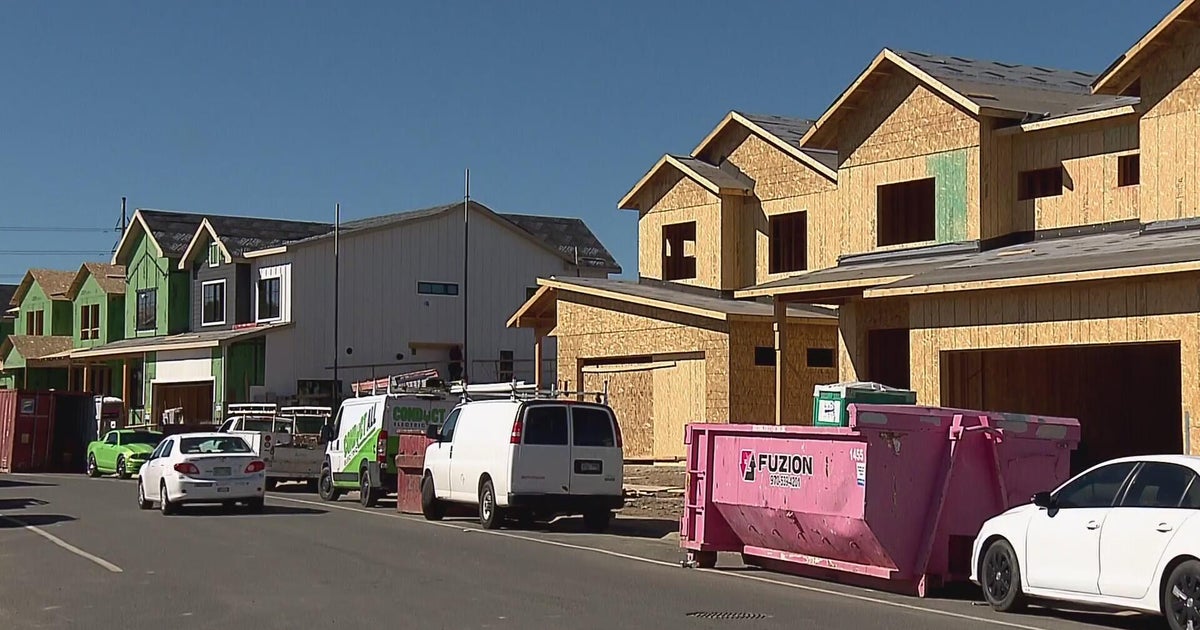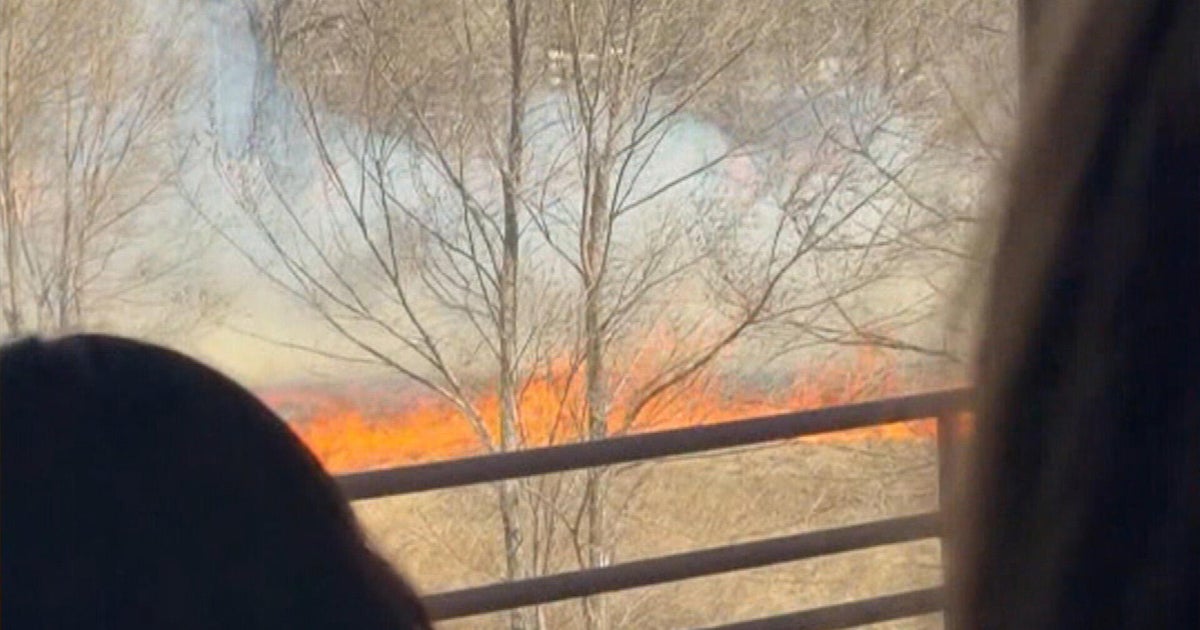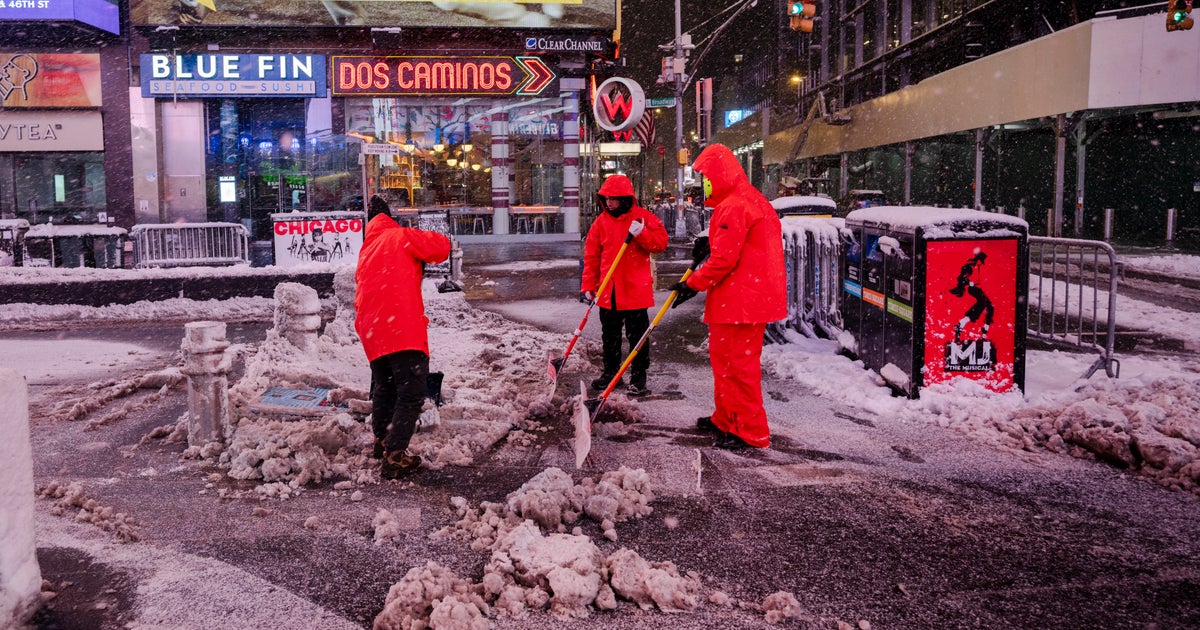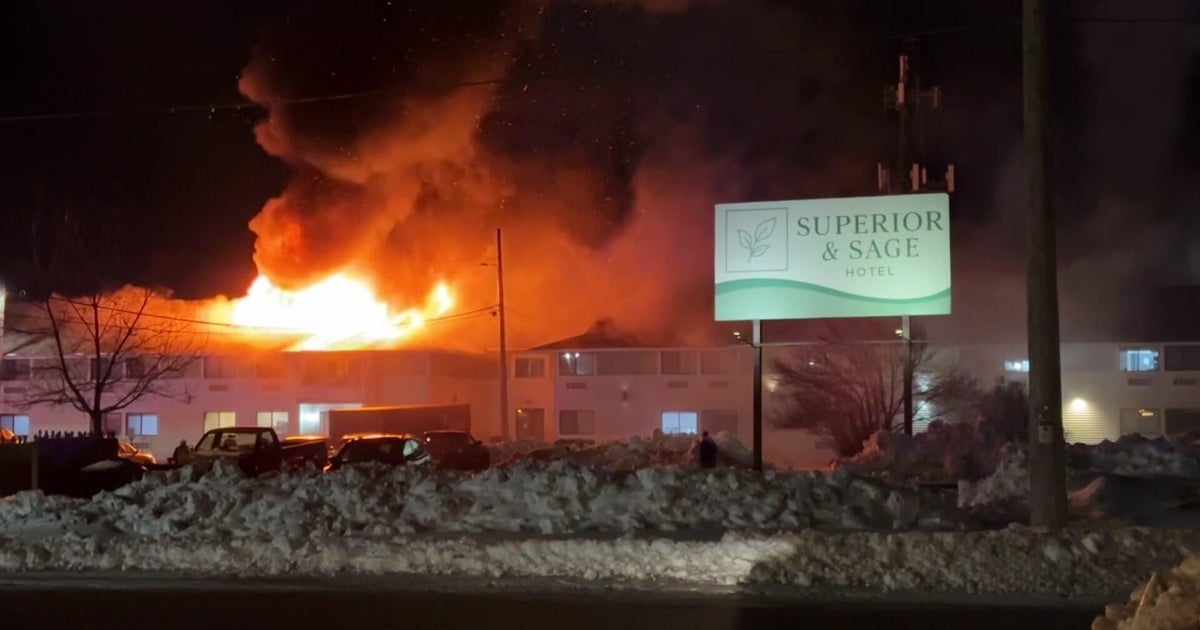Money Matters - Financial Fire Drill: Handling Catastrophes
BOSTON (CBS) - Hurricanes are big news this time of year. Next Monday it will be six years since Katrina which was the most expensive natural disaster to ever hit the U.S.
That area is not prepared for another major hurricane of Katrina force. They still haven't finished rebuilding or cleaning up after Katrina.
Living here in New England, we are at times smug about disasters for they always seem to happen somewhere else. Our heat waves last a few days not a month. We don't get forest fires very often and our hurricanes are usually weakened by the time they get this far north.
But we have had our share. The tornado that ripped through Central Massachusetts on June 1st. You can still see the damage from route 84. Heavy rains have flooded our rivers and caused people to be evacuated. And we can claim we've had the perfect storm!
Natural disasters often happen quickly and are unpredictable. Think about trying to evacuate Cape Cod if a hurricane was going to hit. The traffic would be backed up past Hyannis.
If you are told you have an hour and you need to evacuate your home what do you grab? The kids, the pets, a few family pictures and medications anyone is taking. You'll want your cell phone and a charger for the car as well as one you plug in. The computer back-up disk or just grab your laptop with a battery charger. If the kids are old enough let them pack their overnight bag stuffing into to it what's important to them including sensible shoes for everyone.
It's a good idea to know where your most vital information is and hopefully it is easily accessible to toss in a Disaster Bag. The FEMA website has some great information but I am not sure anyone bothered to look at it before Katrina. Red Cross as well has good information and guess who else, the IRS.
FEMA recommends gathering the following documents and items and keeping them, or copies of them, in an easily accessible place where you can grab them quickly and take them with you if you were told to evacuate.
- Personal identification (i.e. drivers' license and/or passport)
- Cash (including some coins). It doesn't have to be a lot, but enough for you to be able to live on for at least a three days. Without electricity your credit/ATM cards won't work.
- Credit cards
- Checkbook
- Extra set of house keys and car keys
- Copies of the following documents:
- Birth certificates
- Marriage license
- Driver's license
- Social Security card
- Passport
- Wills
- Health Care Proxies
- Deeds or mortgage information for your home. A copy of your most recent mortgage payment statement will have your account and lender information.
- Inventory of household goods. Preferably list and take photos of your biggest or most important possessions (i.e. appliances, electronic equipment, collections, jewelry, furniture, etc.).
- Insurance records/policies
- Health records if you have a medical condition that requires medication, treatment or a doctor's supervision.
- Copies of your prescriptions.
- Immunization records for your children
- Bank account and credit card account numbers and phone numbers
- Account numbers and contact information for any financial investments you have such as stocks and bonds
- Loan information for any outstanding loans you have in addition to your mortgage (i.e. personal loans, car loans, student loans, etc.)
- Emergency contact list with phone numbers of family, close friends, and doctors
- Map of your area with phone numbers and potential places to go
- Nonperishable food like granola bars and bottled water.
- If you have pets, pack a copy of your pet's vaccination records; a current photograph; leash and collar with ID. If you have ever thought about getting Fido a microchip, do it. FEMA does not recommend that you leave your pets behind.
By taking the time now to know where all of this information is, you and your family will be able to leave your home quickly and safely with the peace of mind that you have what you need to survive.
More thoughts on the subject:
Plan for Pet Disaster Needs
- Identifying shelter. For public health reasons, many emergency shelters cannot accept pets. Find out which motels and hotels in the area you plan to evacuate to allow pets -- well in advance of needing them. There are also a number of guides that list hotels/motels that permit pets and could serve as a starting point. Include your local animal shelter's number in your list of emergency numbers -- they might be able to provide information concerning pets during a disaster.
- Take pet food, bottled water, medications, veterinary records, cat litter/pan, can opener, food dishes, first aid kit and other supplies with you in case they're not available later. While the sun is still shining, consider packing a "pet survival" kit which could be easily deployed if disaster hits.
- Make sure identification tags are up to date and securely fastened to your pet's collar. If possible, attach the address and/or phone number of your evacuation site. If your pet gets lost, his tag is his ticket home. Make sure you have a current photo of your pet for identification purposes.
- Make sure you have a secure pet carrier, leash or harness for your pet so that if he panics, he can't escape.







